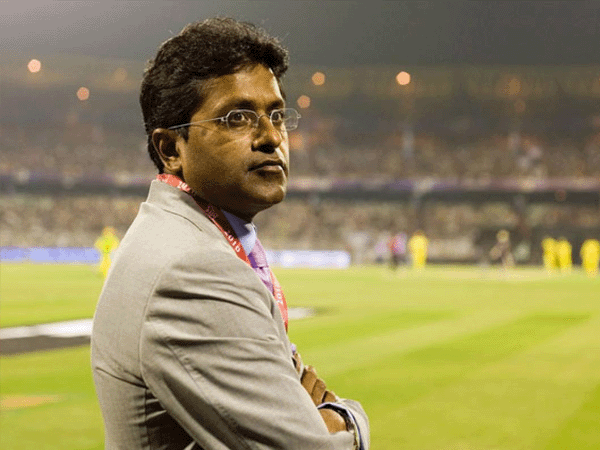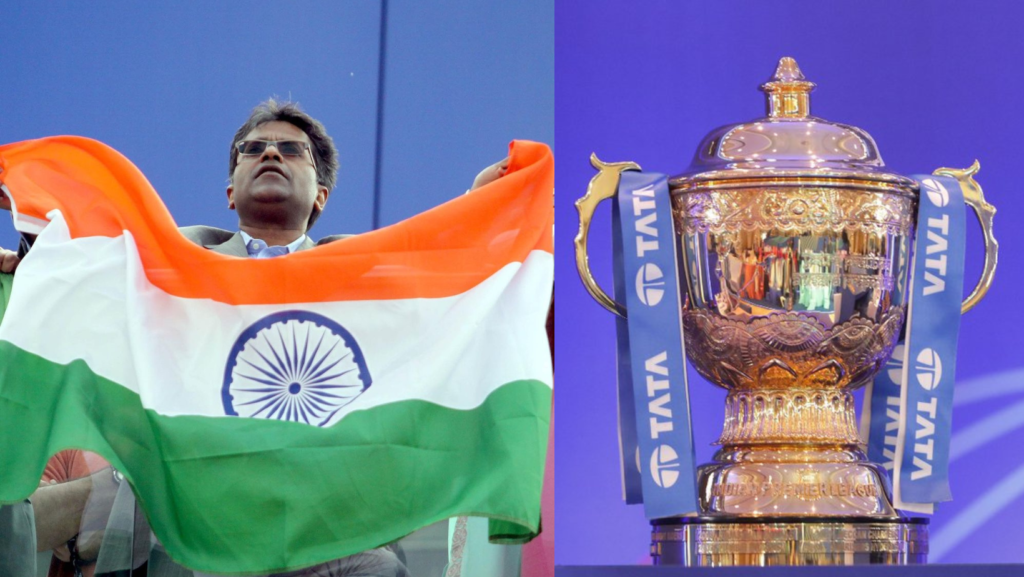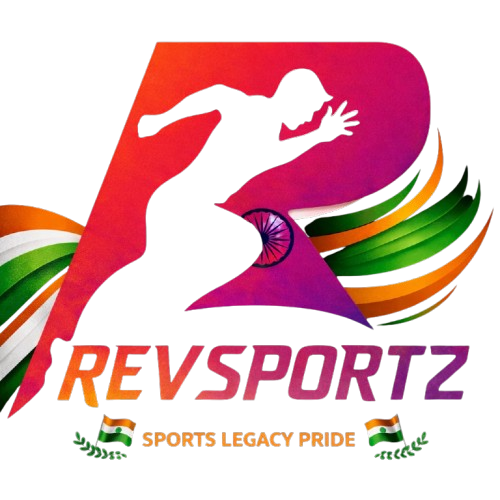
In the latest no-holds-barred episode of Backstage with Boria, RevSportz’s editor-in-chief talks to Lalit Modi, the architect of the Indian Premier League (IPL) on the recent developments with The Hundred in England. The England and Wales Cricket Board (ECB) have spoken of tremendous interest from Indian investors, but Modi, who says he backed out of negotiations earlier, opens about with typical candour about how the numbers just don’t add up.
Excerpts:
You said the ECB’s sale of The Hundred is much like a Ponzi scheme. Why did you use such harsh words?
Look at the last scheme they put out with [Allen] Stanford, which did turn out to be a Ponzi scheme. If you look at the document put out by the ECB, right at the beginning, you’ll see a disclaimer. It clearly says ‘We’re not responsible for any numbers’, not guaranteeing any numbers. Not all numbers put inside by our investment bankers are valid. Nothing we say is a fact, and it’s up to you to decide. Now, for a layman sitting outside, and especially for Indian investors who have little or zero understanding of the English market, you’re hoping that you can rely upon numbers put out by a governing body. If there is nothing you can rely on, obviously I find that suspicious and something that needs to be looked at very clearly.
Why do you feel so strongly against this proposal? At one point, you were interested.
I was interested, yes, but in a completely different format. We had a discussion with the ECB. I chose not to leak that document because the negotiations went nowhere and, in good faith, I wished them all the best. It was only yesterday when the ECB chairman came out with a rebuttal and said an offer was made…yes, but based on a completely different aspect. The Hundred has a format that’s not recognised anywhere in the world. My proposal was to run an IPL-style tournament independent of the ECB after given them a fat licence fee. Developing the media market, developing the fan base locally, without the baggage of the ECB or counties on top of that. My proposal was quite different and they didn’t take it. So be it.
Looking at their proposal and how they’ve been hyping it up, of course people are interested. If the price is right, I would encourage everybody to bid. Even the worst clubs, with the lowest attendance, are expecting 50-70 million pounds in valuation. For a minority stake, they’re expecting half that. Now, why would someone pay 35-40 million pounds for a minority stake when no numbers are guaranteed? Of course, there’ll be interest from buyers in a sporting country like England, with a great legacy of clubs. You’ve seen that in rugby, in football and I’m sure that’ll be relevant in cricket too. But what they have done with The Hundred is not something that’s appealing to the rest of the world.
You’ve given me the macro picture. But can you break down what you called a Ponzi scheme, so that Indian investors and viewers can understand?
If you look at the media rights, they were saying this year, it was 37.8m pounds. In 2032, that’s going to go to 85m pounds. The market in the UK for domestic rights is currently flat, for all sports. How do they expect to go up to such numbers when they only have a signed contract till 2028? I cannot fathom those numbers going up with the market declining. Whether it’s football, rugby or tennis, it’s declining. Why would a format in the domestic market capture the imagination of more viewers? It’s the same tournament that’s been there the last three years, except for the small tweak of bringing in IPL owners. No Indian players, mind you. Same English players. Same amount as purse. Only the ownership changes.

In the case of Surrey and The Oval, they’re saying we won’t even give management control. So, it’s going to continue to be run the way it is, taking the money of the investors coming in. Roll the dice like in a casino and hope that something will work out. Their projection is a best-case scenario. When we put out the IPL tenders in 2007, we already had a billion-dollar deal, non-negotiable, in the bank before signing any franchise agreement. Our minimum bid price was $50m, in those days, payable over 10 years. I guaranteed them that they would get back $5m every year from broadcast money alone. The risk level was taken out. They had to pay for players, operational costs, but with the upside of ticketing, sponsorship revenue, your own team sponsorships, other media rights.
Secondly, there’s an issue regarding sponsorships. In a market that is flat, going from 5.7m (pounds) to 32m is again wishful thinking. Have they demonstrated that the sponsorship revenue is going up year after year? It isn’t. The guaranteed revenue is 5.7m, going to 6.3m next year. How are the jumps going to take place to get it to 32m?
Then, you come to the major issue. They have 2.1m pounds today for international rights.
I was about to ask that. You’ve been very critical of their international valuation projections. No league has made this kind of money is what you said.
Up to 2032, it constitutes about 47 per cent of the total revenue The Hundred is going to make. For the IPL, international rights are about 3 per cent. That too for the IPL, which is a global phenomenon. As far as the CPL and Major League Cricket are concerned, the Middle Eastern League and South Africa, and even great cricketing tournaments like the Big Bash, they have negligible international revenue. They say India is the Mecca for cricket. Yes, but for Indian cricket. People pay and watch Indian players. Then, they go on to say that the American rights are going to go up phenomenally. That’s not been proven for anybody, including the IPL. They’re saying the World Cup that took place is a demonstration of that. They’re saying the Olympics coming in will further demonstrate that.
Let’s go back to the [T20] World Cup that just finished. Who watched that? Only India matches were watched. And that too India-Pakistan and some others. People are pegging their coats on the World Cup having done well. It hasn’t. India was participating and India made it to the final. You saw the debacle in the West Indies in 2007, when India were out. It had a major impact on the viewership and revenues. You cannot base your international rights on that.
Let me play Devil’s Advocate, Lalit. The ECB chairman says there is tremendous interest. Is there any way you could be wrong and they could be right?
There is tremendous interest in English cricket provided it is priced right. Tremendous interest at 300m pounds? Right now, I can tell you: none! I will shut all my social media accounts down if the ECB is able to achieve such a valuation for any of its teams.
England is a known destination for sports, Lalit. You yourself said T20 will do well in England. Why the change of heart?
There’s no change of heart. I said very clearly ‘T20’. I didn’t say The Hundred. It’s a totally different game. Everybody around the world knows T20. The ECB can still go out and make it a T20. Nobody is stopping them. I don’t understand why they have to distinguish themselves as The Hundred. How many formats are you going to develop? America is the new world for them. India and South Africa are established T20 markets. So is the Caribbean and Australia. How are you going to go and explain what The Hundred is now? That’s a fundamental issue.
What was your proposal to the ECB which they rejected? Are you reacting because they didn’t accept it?
Absolutely not. I’m reacting because they made it public. I didn’t make a proposal. We were negotiating. I sent you a copy of the proposal. Please show it to the viewers. It says I’m withdrawing because you’re going ahead with The Hundred. I don’t even want to make an offer for that. It’s a format I don’t believe will work. I will only be interested if you change it into a T20.
Look at the ECB document. They said they will be bundling the rights with the ECB’s and apply a fair value to it. Tell me, who is the judge of fair value? Why get into this bickering? Why can’t they just say that country cricket is this, The Blast is this, international cricket is this, and The Hundred is this? If they believe in the tournament, like we did with the IPL, let them go and negotiate a deal now. After year one, we felt we had over-delivered and been underpaid, and we renegotiated. We wanted to give maximum returns to our investors, the team owners.
🚨 Lalit Modi Exclusive:
“If they can sell Lord’s and Ovals for 150 million, I will stop commenting on any cricket going forward. I will close my cricket account down. I will close my social media account down.” – Lalit Modi comes down hard against The Hundred, warns franchise… pic.twitter.com/h1b4GOQSSY
— RevSportz Global (@RevSportzGlobal) September 29, 2024
At some point, that story has to come out. You going from Delhi to Kenya to Johannesburg. When that contract was faxed to you, you were travelling.
You are supposed to do that movie. Waiting for you to start!
Forget The Hundred, no league comes close to the IPL. If you look at other sports, Lebron James, for example, cannot play for two teams. You think cricket franchises suffer because of this?
Absolutely. I completely agree with you there. That’s why the Indian board has taken the wise decision that Indian players cannot participate in any other tournament around the world. First and foremost, why? How many days can a player play? Player fatigue has to be taken into account. There’s the international calendar, the domestic one, and the IPL. When I was in the ICC, way back when, the maximum [agreed] that a player should be on the field was 105 days. Some players are playing far in excess of that today. If an Indian player was to play for an Indian team and another one, there’s a conflict of interest, because he might get injured there. He may not then be able to play for his home team. You’re seeing that problem in European football now, with just two additional games (in the UEFA Champions League). The players don’t want that additional burden.
Here, we’re talking about a whole new tournament. Players from West Indies, Sri Lanka, South Africa and New Zealand are playing in multiple tournaments around the world. That will exhaust them. They have no loyalty towards any one tournament, or one team. It’s money-based and nothing more.
Someone told me that Lalit Modi grudges Indian investment because he’s no longer involved with the IPL.
The IPL is my baby. I always comment on it. The [BCCI] team under Jay Shah has done a great job with the IPL, and it continues to scale new heights. I’m the proud father of a league I created. I’m upset that they’re trying to lure Indian teams to participate in The Hundred. Last year, they said we don’t want Indian IPL owners. They tried going to other places, and found nobody. Now, they’re stuck because they need to raise 500m pounds from the sale of the teams. So, who else do they go to but the IPL teams? I think the IPL teams would be great for them. They have already invested in a few other leagues.
The only one that is successful is in the Caribbean and, to a certain extent, South Africa. The Middle Eastern league is doomed. There’s no chance of the American league succeeding. These are other avenues for the IPL owners to put their expertise out there. They can identify talent and get them to the IPL auction. I would be extremely happy if all eight [The Hundred] franchises were bought by IPL owners. At the right price. My calculations are not ready yet, team by team, but for a 49 per cent stake, not more than $10m. Unlike what was paid for the IPL teams initially.
Also Read: Robi is no super fan, but an opportunistic liar
You praised Jay Shah and his team. He’s now chairman of the ICC. How hopeful are you?
It’s a very commendable thing for the youngest chairman of the ICC to be an Indian. I’m sure he’ll be able to do what he’s done with the IPL. The ICC will also prosper. Wish him all the best. With the Olympics coming up in Los Angeles, I hope the ICC can bring new clubs and players into the fold. If they’re able to garner a little more support outside the Commonwealth countries, that’ll be a big boost for cricket. But that’s not a two or three-year task. It’s a 15-20-year window. It’s the right time to start because the short format will allow the game to make further inroads by taking it to the Olympics.




